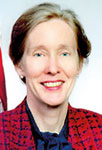The meeting in Geneva is over, leaving a sour taste in everyone's mouth. It's time to put Sri Lanka's political rebuilding on track, and repair US-Sri Lanka relations in the process.
Despite the dark conspiracies being described in the Sri Lankan press, the US had hoped to avoid a confrontation in Geneva. A far preferable outcome, from Washington's perspective, would have been for the Sri Lankan government to use the Lessons Learned and Reconciliation Commission (LLRC), and move toward implementing its recommendations. Washington focused on the LLRC because it was a home-grown institution, always a stronger basis for political healing than imported ideas. Unfortunately for everyone, the moment when this could be done discreetly and with no appearance of outside nagging has passed.
For the next year, the UN Human Rights Council will be dealing with other issues. This is the time for Sri Lanka and the United States to relaunch their relations. External Affairs Minister G.L. Peiris's upcoming trip to Washington represents an excellent opportunity to do just that.
An important US contribution to this enterprise, ironically, was getting under way even as the UNHRC was meeting. A US government team was in Colombo to negotiate and Trade and Investment Framework Agreement (TIFA).
Such agreements set the broad rules for expanded economic relations, and the predictability they provide have been extremely useful in other countries in attracting new business - precisely what Sri Lanka needs to strengthen and extend the peace dividend after its long and bitter war. It's time to conclude the agreement. Resolving the issues raised in the US labour movement's petition against Sri Lanka's duty free access to the US market under GSP would be an added bonus.
Sri Lanka could make two contributions to this effort. The first would be to intensify its reconciliation efforts. Senior government personalities generally describe economic development as the key tool in this effort. I believe it is an important starting point, but not the only tool.
The political benefits of economic development will be much stronger if it is supplemented by concrete moves toward addressing war-related grievances and political integration. The government has often cited the LLRC as its preferred vehicle for beginning the reconciliation process. Moving toward implementation, consequently, would appear to be the government's own decision, using the government's own means.
A more complicated US-Sri Lankan issue, unrelated to the human rights dispute, arises from current US sanctions on Iran and Sri Lanka's high dependence on Iran for oil imports. Sri Lanka would appear to have good reason to diversify its oil imports to provide additional security in an uncertain energy market. A little quiet diplomacy with the United States as it reviews its energy purchasing patterns might pay rich dividends.
Lowering the temperature between Colombo and Washington is not just an exercise in improving the atmosphere for its own sake. Sri Lanka's economic goals - which, as we have already seen, are closely linked to this government's goal of bringing the island together - cannot be achieved if Sri Lanka walks away from expanding economic engagement with the largest economy in the world, and from its largest export market. The United States too has important interests in play. One that has risen in importance in the last two decades is the strategic importance of the Indian Ocean, which is not just a passageway between the major U.S. security presence in the Persian Gulf and in the Western Pacific. It has become a strategic zone in its own right, and the United States needs to engage with Sri Lanka on that basis.
Sri Lanka's relations with the United States have always been influenced by the human side of the government's actions. From the time of independence, Sri Lanka was a country that held free elections and took pride in its ability to bring about peaceful governmental change. It was and is a country where everyone can read, nearly everyone finishes secondary school, and basic health care is the envy of the region. These are accomplishments that have brought the United States and Sri Lanka together. On the other hand, the ethnic war and the JVP uprising created a terrible legacy of disappearances and political violence that left thousands dead in Sri Lanka - and did terrible damage to US-Sri Lankan relations in earlier years.
Human rights represent an important strand in America's political makeup, one that has tremendous resonance around the United States. Americans share in the excitement of countries that are recovering from long internal conflicts. Look at the way the opening of the political system in Myanmar has captured people's imagination. Sri Lanka has an opportunity to generate that same kind of positive excitement, using a mechanism it created, and serving a goal - the creation of a more united country - that all its politicians espouse. Don't let the moment for real action slip away.
" Teresita Schaffer, a non-resident Senior Fellow at the Brookings Institution in Washington, was U.S. ambassador to Sri Lanka from 1992-1995. |



